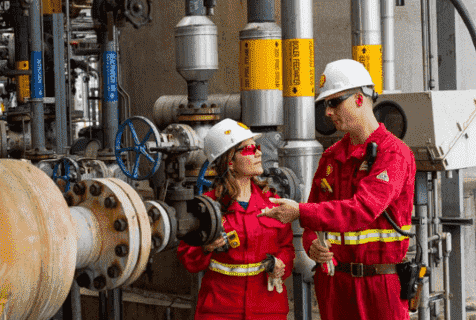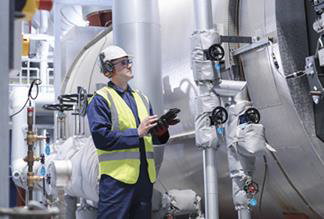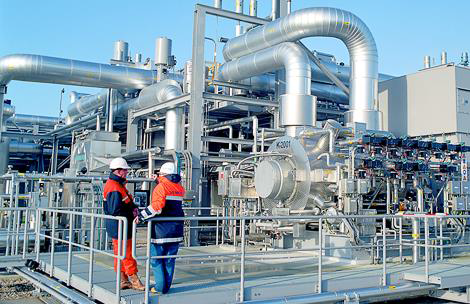COURSE OVERVIEW
PE0580 : MTBE Production, Blending & Process Troubleshooting

OVERVIEW
| COURSE TITLE | : | PE0580 : MTBE Production, Blending & Process Troubleshooting |
| COURSE DATE | : | Jun 10 - Jun 13 2024 |
| DURATION | : | 4 Days |
| INSTRUCTOR | : | Mr. Mervyn Frampton |
| VENUE | : | Abu Dhabi, UAE |
| COURSE FEE | : | $ 4500 |
| Request For Course Outline | ||
OTHER SCHEDULED DATES
| Date | : | Oct 14 - Oct 17 (4 Days) | Location | : | Dubai, UAE | Classroom Fee (US$) | : | $ 4500 | Course Info |
| Date | : | Dec 09 - Dec 12 (4 Days) | Location | : | Istanbul, Turkey | Classroom Fee (US$) | : | $ 5000 | Course Info |
Course Description
This practical and highly-interactive course includes reallife case studies and exercises where participants will be engaged in a series of interactive small groups and class workshops. Since the phase-out of Lead from Gasoline in 1979, Methyl Tertiary-Butyl Ether (MTBE) has been used worldwide as an octane enhancer or anti-knocking agent. The use of MTBE at higher levels resulted from two fuel programs required by the USA Air Act Amendments (CAAA) of 1990, the Wintertime Oxygenated, and Reformulated Gasoline Programs. Most oil companies chose to use MTBE as the main fuel oxygenate and since 1997 it has become the second most heavily produced chemical in the United States and the world. Since it has a relatively low heat of vaporization, MTBE improves fuel mixing and atomization during cold operation and consequently reduces emissions. MTBE has been blended into gasoline primarily because it has an extremely high-octane value which has enabled it to take the place of Lead compounds gradually being phased out. Adding oxygen to gasoline allows more complete combustion of the fuel, and this reduces exhaust emissions of CO (Carbon Monoxide). Furthermore, when used as part of the gasoline formulation, MTBE leads to a reduction in emissions of exhaust pollutants such as VOCs (Volatile Organic Compounds), NOx (Nitrogen Oxides) and PM (Particulates).This course is designed to provide a comprehensive overview of MTBE production, blending and process troubleshooting. The course covers the production of MTBE and other fuel oxygenates, MTBE Chemical & Physical Properties, MTBE in Gasoline & Blending Properties, Synthesis & Production of Ethers, Kinetics & Thermodynamic of MTBE Reaction, H?ls Ethers Processes, UOP Ethermax Process for MTBE, ETBE, and TAME Production, UOP Olefin Isomerization, Oxypro Process, MTBE & Safety, MTBE and the Environment, and the Impact of MTBE Phase-out on the Refining and Petrochemical Industries. link to course overview PDF
TRAINING METHODOLOGY
This interactive training course includes the following training methodologies as a percentage of the total tuition hours
LecturesWorkshops & Work Presentations
Case Studies & Practical Exercises
Videos, Software & Simulators
In an unlikely event, the course instructor may modify the above training methodology before or during the course for technical reasons.
VIRTUAL TRAINING (IF APPLICABLE)
If this course is delivered online as a Virtual Training, the following limitations will be applicable
| Certificates | : | Only soft copy certificates will be issued to participants through Haward’s Portal. This includes Wallet Card Certificates if applicable |
| Training Materials | : | Only soft copy Training Materials (PDF format) will be issued to participant through the Virtual Training Platform |
| Training Methodology | : | 80% of the program will be theory and 20% will be practical sessions, exercises, case studies, simulators or videos |
| Training Program | : | The training will be for 4 hours per day starting at 09:30 and ending at 13:30 |
| H-STK Smart Training Kit | : | Not Applicable |
| Hands-on Practical Workshops | : | Not Applicable |
| Site Visit | : | Not Applicable |
| Simulators | : | Only software simulators will be used in the virtual courses. Hardware simulators are not applicable and will not be used in Virtual Training |
RELATED COURSES

PE0105 : Process Plant Optimization, Rehabilitation, Revamping & Debottlenecking
- Date : Nov 11 -Nov 14 / 3 Days
- Location : Abu Dhabi, UAE
- Course Details Register

PE0114 : Process Troubleshooting and Problem Solving
- Date : Dec 08 -Dec 10 / 3 Days
- Location : Dubai, UAE
- Course Details Register

PE0655 : Rules of Thumb in Process Design
- Date : Dec 16 -Dec 19 / 3 Days
- Location : Dubai, UAE
- Course Details Register

PE0340 : HYSYS Steady State Process Simulation
- Date : Nov 11 -Nov 15 / 3 Days
- Location : Abu Dhabi, UAE
- Course Details Register
